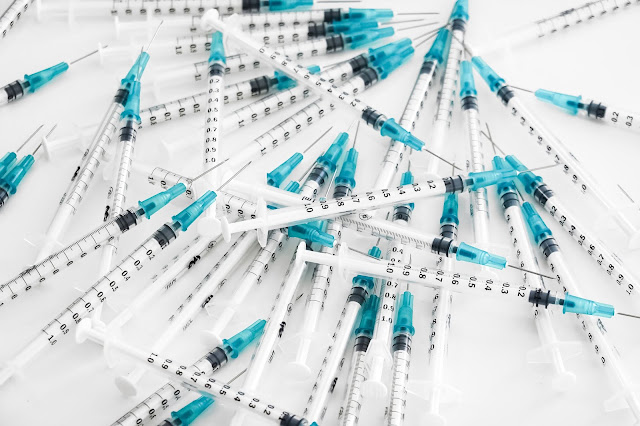Vaccines against Omicron are likely to be less effective, according to the CEO of Moderna
According to Moderna CEO Stéphane Bancel, current COVID-19 vaccines are unlikely to be as effective against the Omicron variant of the coronavirus as they have been against the Delta variant.
In an interview, Bancel told the Financial Times that "I don't think there is a world where (effectiveness) is at the same level as with Delta."
I believe it will be a material drop. I'm just not sure how much because we have to wait for the data. "He went on. But every scientist I've talked to says, "This isn't going to be good."
The Omicron variant was discovered on November 9 in South Africa and reported to the World Health Organization (WHO) on November 24.
 |
| Moderna COVID-19 Vaccine |
Moderna COVID-19 Vaccine
The WHO has classified Omicron as "a variant of concern," but it is unclear whether it is more transmissible or if its symptoms are more severe than those of other variants. However, the organization claims that some of the spike protein mutations are linked to increased transmission and decreased antibody protection.
Bancel told the Financial Times that testing the efficacy of existing vaccines against the Omicron variant would likely take a few weeks, and that Moderna and Pfizer would need several months to test and manufacture an Omicron-specific vaccine.
Meanwhile, Bancel chastised Covax, the global coalition tasked with ensuring equitable vaccine distribution, for failing to provide vaccines to poorer nations, including the African countries where the variant is thought to have originated.
This was primarily a policy decision made by the developed world. We were told in the United States that we had no choice but to give the US government 60% of our output. That was not a decision made by Moderna. That was a decision made by the US government, "he told the news outlet.
Pfizer CEO Albert Bourla said on CNBC's "Squawk Box" that the company was already working on an Omicron-specific vaccine and that the company's oral COVID-19 pill would be effective against the new variant.
The good news is that our treatment was designed with this in mind. It was created with the understanding that the majority of mutations occur in the spikes, "Bourla stated. So that gives me a very high level of confidence that the treatment—our oral treatment—will not be affected by this virus.
"I don't think the vaccines will fail to protect," he said."I think the result could be, which we don't know yet," he said, "that the vaccines protect less."

Comments